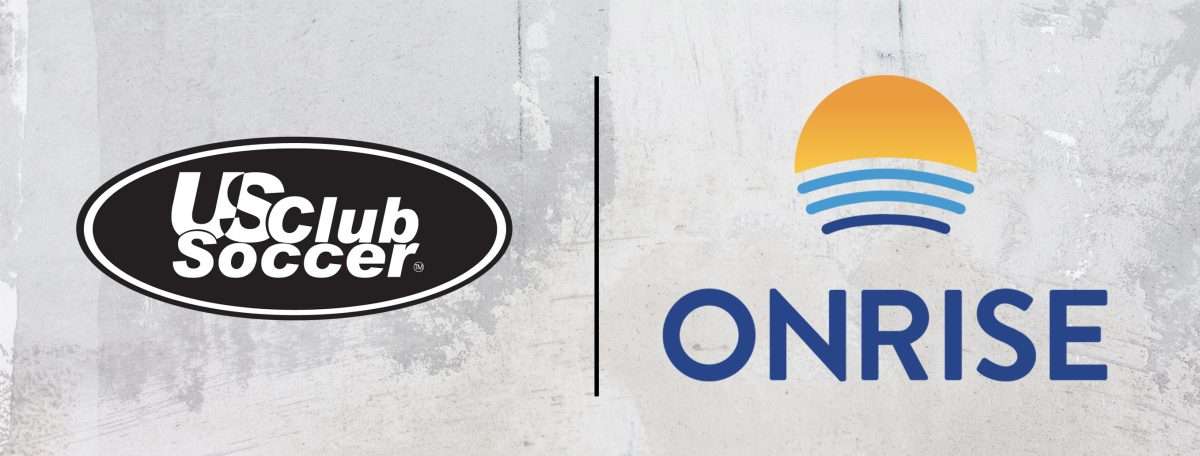'You can not pour from an empty cup. Take care of yourself first.'
Prioritize well-being to sustain long-term success and fulfillment in sports (via Onrise)
Editor’s Note (May 23, 2024): This article was submitted by Onrise, which US Club Soccer has partnered with for ongoing educational resources related to mental health, as part of a Mental Health Awareness Month series. The series will cover the mind-body connection, embracing pressures and overcoming obstacles, mental health awareness and destigmatization in sports, and self-care and long-term satisfaction in sports. The author, Emanuel McGirt Jr., is the Athlete Copywriter at Onrise. Emanuel is a former collegiate and professional athlete and a current NCAA staff member. He grew up playing football and continued his career at NC State and briefly in the Canadian Football League (CFL).
When you pour from a cup that isn’t filled, not only do you deplete yourself even more, but you also can’t properly provide the amount needed for those you are serving. Oftentimes within the athlete community, we are so wrapped into the dedication, commitment and service to athletes that we forget about the people spending the same hours (and sometimes more) to serve. Coaches’ and administrators’ mental health matters. Those entrusted to lead must make sure that they are mentally well and equipped to be able to properly lead the athletes on their team and within their organization. To truly garner long-term success, it begins at the top, as success is not random but is a sum of repeated actions and behaviors that either lead you to a goal or deter you.
Organizations that win and sustain success over a period more than likely have leaders who are relentless in their approach but calculated in how they engage with others and themselves. In order for mental health to be valued in an organization or team, the leaders at the top must value it in order to get others to adopt their mindsets. What coaches say matters, but their actions are what display their commitment to the values, ideas, and philosophies that they share with players.
Filling up your cup means you have to pour into yourself, and when your cup is full, what spills out due to the overflow is what you have to give to others. Coaches and leaders of organizations must realize that you have to be mentally well in order to truly give your best self to your athletes. That means prioritizing your mental well-being should be first and foremost. In the high-stakes environment of sports, coaches often focus intensely on the performance and well-being of their athletes, sometimes to the detriment of their own mental health.
Prioritizing self-care is essential for coaches to sustain long-term success and fulfillment in their careers. By integrating practices such as mindfulness, adequate rest and professional mental health support, coaches can maintain their emotional and psychological resilience. This self-care not only prevents burnout but also models healthy behavior for their athletes, demonstrating the importance of maintaining balance and well-being amidst competitive pressures.
Coaches who invest in their own mental health are better equipped to serve their athletes effectively. When coaches prioritize their well-being, they can create a more supportive and understanding environment, fostering open communication and trust within their teams. This holistic approach ensures that coaches can consistently offer high-quality guidance and support, contributing to the overall success and fulfillment of both them and their athletes.
The five essential self-care types are physical, social, mental, spiritual and emotional. For coaches, to be truly effective in serving their athletes, they must prioritize their own self-care across five essential dimensions.
Physical self-care is fundamental; treating your body as a temple involves nourishing it with a balanced diet, regular exercise and adequate sleep. This care boosts energy levels and enhances mental wellness, allowing coaches to maintain the stamina and clarity needed to guide their athletes effectively.
Social self-care is equally important, as surrounding oneself with positive, supportive individuals fosters a sense of belonging and encouragement. Engaging in meaningful conversations and spending quality time with loved ones helps coaches build a strong network of relationships, which provides emotional support and reduces feelings of isolation.
Mental self-care is crucial for keeping the mind sharp and engaged. Coaches should stimulate their minds with activities that challenge and inspire, such as reading, solving problems or pursuing hobbies outside of coaching. This not only fosters personal growth but also equips coaches with a broad array of strategies and ideas to share with their athletes.
Spiritual self-care offers a pathway to peace and purpose through practices like meditation, prayer or spending time in nature. Connecting with something greater than oneself helps coaches find inner balance and clarity, which is essential for maintaining a grounded and focused approach to their work.
Emotional self-care involves honoring and expressing feelings in healthy ways. Whether through journaling, talking to a therapist or reflecting, managing stress and maintaining emotional well-being are critical. This emotional resilience allows coaches to navigate the pressures of their roles and support their athletes with empathy and understanding.
ABOUT US CLUB SOCCER
A National Association member of the U.S. Soccer Federation, US Club Soccer fosters the growth and development of soccer clubs in order to create the best possible environment for players of all ages.
Anchored by Players First and its pillars of Club Development, Coaching Development, Player Development, Referee Development, Parent Engagement and Player Health & Safety, US Club Soccer offers registration, league- and cup-based competition platforms, player identification and a variety of other programming, resources and services.
US Club Soccer is sponsored by Nike, DICK'S Sporting Goods and Gatorade.
usclubsoccer.org | App | Instagram | Facebook | X | YouTube |



